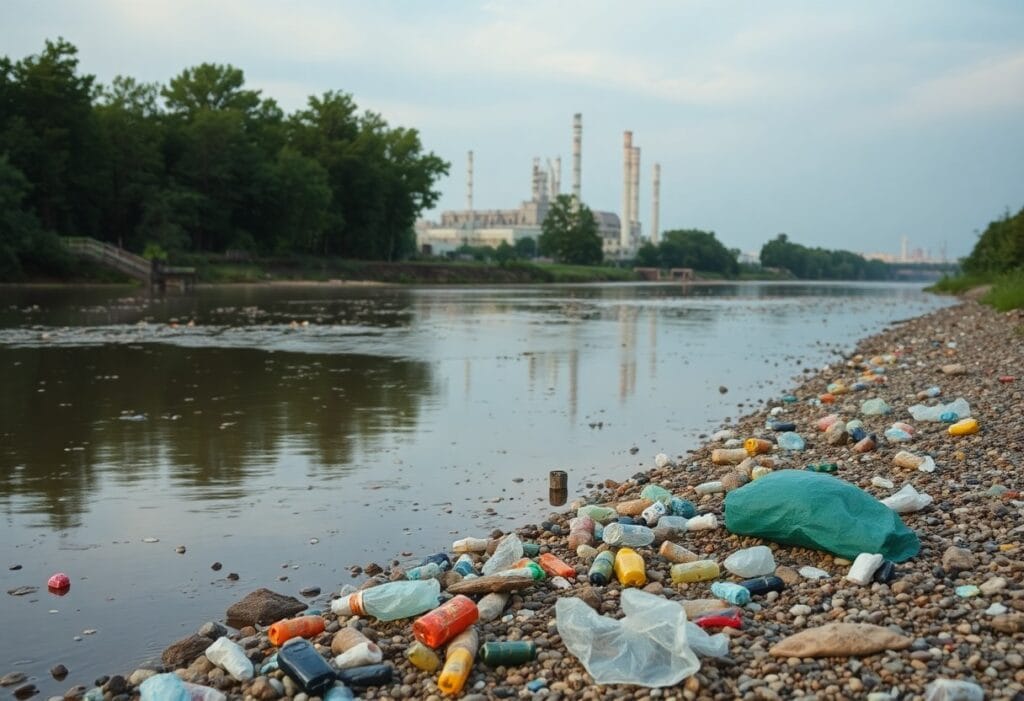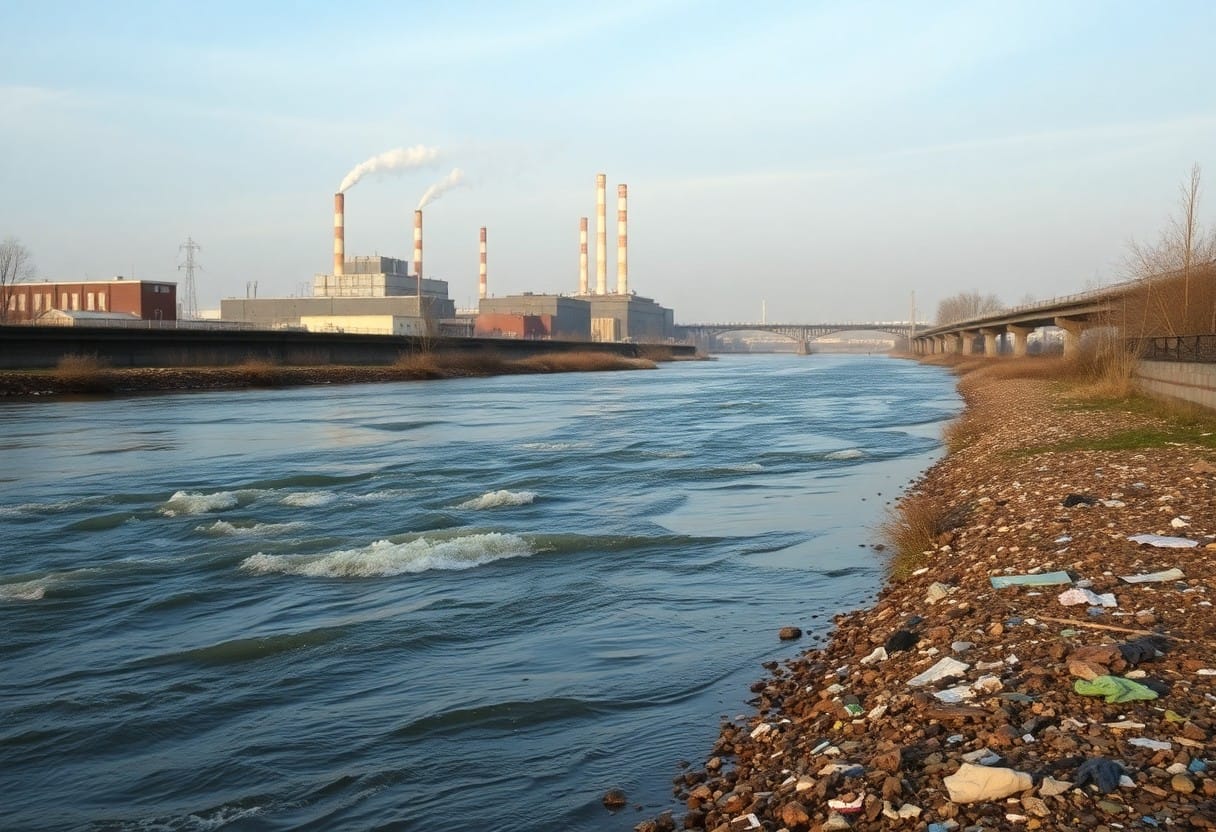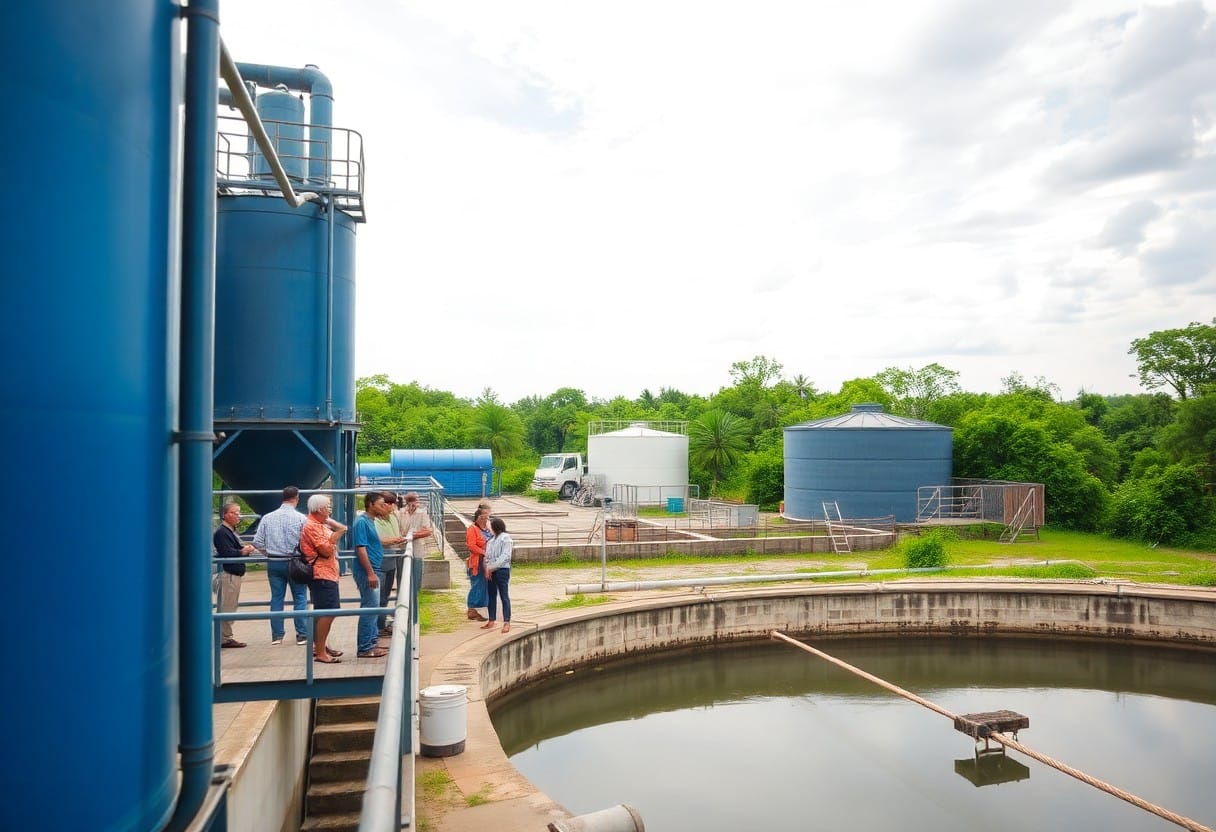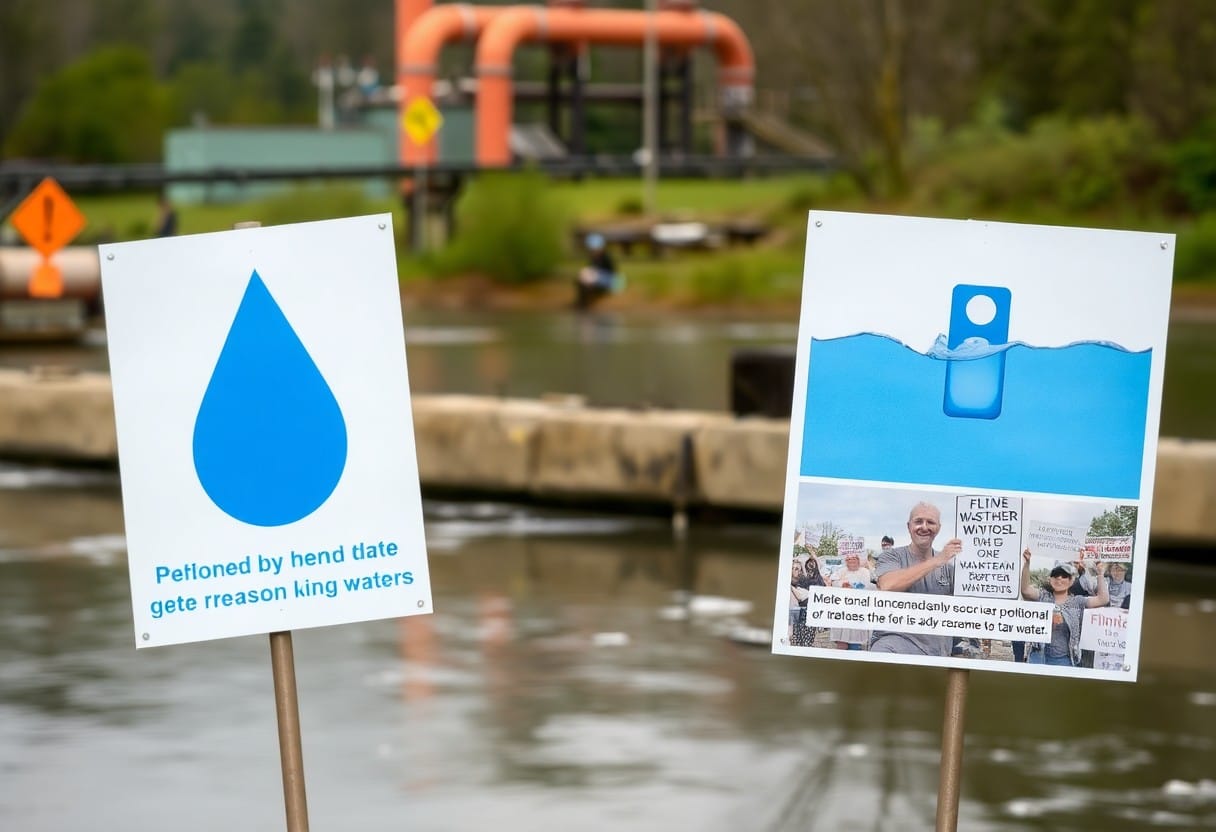Fallout from Chemours’ water contamination in Fayetteville has significant implications for you and your community. The economic repercussions extend beyond health concerns, affecting property values, local businesses, and job security. As residents grapple with potential long-term health issues, your investment in the area may be at risk. Understanding the scope of contamination and its economic impact can help you make informed decisions about your future and community involvement. This post will explore the various facets of this pressing issue, arming you with knowledge to navigate the complexities ahead.
Overview of Chemours and Water Contamination
For many residents of Fayetteville, the name Chemours has become synonymous with environmental concerns and public health risks. This chemical manufacturing company, which spun off from DuPont in 2015, produces various chemicals used in industries ranging from agriculture to consumer products. Its operations, however, have raised significant alarm due to the water contamination issues that have recently come to light. The legacy of its predecessor, DuPont, regarding environmental impacts has further compounded the scrutiny faced by Chemours, making it a focal point for discussions on industrial accountability and community safety.
Background on Chemours
On its inception, Chemours positioned itself as a leader in the production of fluoroproducts, which include items such as refrigerants, nonstick coatings, and even plastic products. The company maintains a strong presence in Fayetteville, where it operates a large facility that produces these chemicals. However, the operations of Chemours have raised numerous questions about the environmental ethics embedded in industrial practices. The local community’s concerns primarily revolve around the safety protocols employed by the company and the overall impact on water quality.
Nature of Water Contamination
Between the years of operation, Chemours has been implicated in significant water contamination incidents in Fayetteville, raising alarms about the impacts on local water sources. Investigative studies have detected the presence of per- and polyfluoroalkyl substances (PFAS) in water supplies, which are known for their harmful effects on human health and the environment. These substances have been linked to a range of health issues, including cancer, liver damage, and developmental problems in children. The pathways through which these contaminants have entered local water systems are complex and often tied to inadequate chemical handling and disposal practices at the Chemours facility.
This situation has not only posed direct health risks to residents but has also influenced economic activities in Fayetteville. As you assess the long-term impacts, it is crucial to understand that PFAS contamination can lead to decreased property values and heightened costs associated with water treatment and health care. Community members rely on safe, clean water sources for both their well-being and their livelihoods, which makes the resolution of this contamination issue a pressing priority for local leadership and citizens alike.

Economic Impact on Local Communities
Some communities in Fayetteville have already begun to feel the economic effects of Chemours’ water contamination issue. As water quality concerns escalate, the repercussions extend beyond environmental damage to include tangible impacts on residents’ financial stability and community well-being. Efforts to remediate the contamination and restore public trust require significant funding and support, leading to a diversion of resources that could otherwise benefit local initiatives. The ongoing situation can create an atmosphere of uncertainty that permeates everyday life for individuals and families.
Decline in Property Values
Before the contamination issues came to light, neighborhoods in Fayetteville offered houses that were considered valuable assets. However, with the revelation of Chemours’ water pollution, your property values may have taken a hit. Buyers often hesitate to invest in homes located near contaminated sites, leading to an oversupply of homes for sale and a corresponding drop in prices. This decline in property values not only affects individual homeowners but also has a repelling effect on potential buyers, thereby limiting economic growth in the community.
Effects on Local Businesses
An immediate consequence of the contamination crisis is the adverse effects on local businesses. The perception of Fayetteville as an unsafe area for commerce could deter potential customers, resulting in decreased foot traffic and slumping sales. Business owners may struggle to maintain their operations as the fallout from the contamination weighs heavily on consumer confidence. Even those who are not directly affected by the chemical spill may feel the repercussions as the broader economic ecosystem falters.
But the implications of Chemours’ water contamination extend beyond mere sales figures. Local establishments may face increased insurance costs and potential legal liabilities that can threaten their financial viability. Additionally, as local residents become more apprehensive and choose to limit their spending out of caution, businesses could feel an even deeper pinch. Thus, the long-term effects of this environmental crisis may not only alter your local landscape but persistently disrupt economic opportunities within Fayetteville.
Health and Environmental Concerns
There’s no denying that the health and environmental risks associated with Chemours’ water contamination in Fayetteville are profound. The contamination of water sources with harmful chemicals like per- and polyfluoroalkyl substances (PFAS) poses severe threats to public health. You might be concerned about exposure to these toxic compounds, which have been linked to various health issues, including increased risks of cancer, liver damage, and reproductive problems. The prevalence of these substances in your drinking water can lead to widespread anxiety and a decline in community well-being, as residents question the safety of their everyday water supply.
Public Health Risks
After the discovery of contaminated water, you may feel a heightened sense of vulnerability regarding your health and that of your loved ones. Local health officials urge you to be aware of the potential dangers connected to PFAS, which can accumulate in the human body over time and impact immunological functions as well as hormone levels. In your everyday life, simple activities like cooking, bathing, and even brushing your teeth using contaminated water can expose you to various health risks, amplifying the necessity for immediate action and remediation from the responsible parties.
Long-term Environmental Damage
Between the extensive contamination of water supplies and the degradation of local ecosystems, the long-term environmental damage caused by Chemours is profound. The persistence of PFAS in the environment poses a significant challenge as these chemicals do not easily break down, leading to the potential for widespread and lasting contamination. The effects on your local habitats can be devastating; wildlife that relies on these water sources may be affected by bioaccumulation of toxins, threatening biodiversity and disrupting ecological balance.
Also, the long-term consequences extend beyond immediate health concerns. The impact on your local water systems may lead to increased treatment costs and necessitate stricter regulations to manage water safety and quality. If the ecosystem remains compromised, it could hinder recreational activities, affect tourism, and hurt local businesses that depend on natural resources. As a resident, you not only face potential health risks, but you may also witness long-lasting economic repercussions tied to this environmental crisis, emphasizing the urgency for accountability and action in addressing these substantial challenges.
Regulatory Response and Accountability
Now, you may be wondering how state and federal agencies are responding to the fallout from Chemours’ water contamination in Fayetteville. Government intervention has become increasingly necessary as communities face significant health risks and environmental degradation. Regulatory bodies like the Environmental Protection Agency (EPA) are actively assessing the situation, with potential measures that include stricter regulations on chemical discharges and enhanced monitoring of local water supplies. These actions aim to not only hold Chemours accountable but also to protect you and your community from further harm. Local and state authorities are also stepping up their efforts to ensure compliance with environmental standards and to provide citizens with accurate information regarding water quality.
Government Intervention
Along with federal oversight, local governments are taking proactive steps to address the contamination. They are conducting independent studies and creating task forces aimed at fostering transparency and accountability. You may find community meetings and forums where officials discuss water testing results and outline next steps to remedy the situation. These initiatives are necessary for restoring public trust and ensuring that you have access to safe drinking water, as well as preventing similar incidents in the future.
Legal Actions Against Chemours
One significant avenue for accountability has been the legal actions against Chemours. Lawsuits have been filed by local governments and affected residents seeking compensation for damages and cleanup efforts related to the contamination. These legal battles not only aim to hold the company financially accountable for its actions, but they also raise awareness about the risks posed by chemical pollutants. Your involvement in these discussions—whether through attending community meetings or participating in advocacy groups—can amplify the call for justice and change.
In fact, the outcomes of these legal actions could lead to significant changes in corporate responsibility standards in the chemical industry. As more evidence surfaces regarding the extent of environmental harm caused by Chemours, you can expect that both punitive damages and mandatory cleanup measures will be sought. The emphasis on corporate accountability underscores the importance of public interest in holding companies responsible for their environmental impact. This situation serves as a critical reminder of the power of community advocacy in shaping regulatory practices and ensuring that your rights to safe water and environmental integrity are protected.
Mitigation Efforts and Remediation
Many residents and environmental advocates have raised concerns about the long-term implications of Chemours’ water contamination in Fayetteville. As the company faces increased scrutiny, there is a pressing need for effective mitigation efforts that not only address the pollutants already present but also prevent further damage. You may have heard about the outrage over Chemours’ plans to expand production after the contamination incident. Such apprehensions highlight the heightened demand for accountability and transparency as communities look toward the future.
Clean-Up Initiatives
Before addressing the economic fallout, it is vital to consider the clean-up initiatives being implemented in response to the contamination. Various programs, both at state and local levels, are aimed at restoring the affected water sources and reducing future risks. The establishment of monitoring systems is one of the steps taken to assess water quality regularly and promptly identify any potential hazards. You’ll find that these initiatives not only involve the remediation of contaminated sites but also community education about safe water practices.
Investor and Stakeholder Responses
About the responses from investors and stakeholders, the economic impact of Chemours’ actions has led to mixed reactions. Some stakeholders express their concerns regarding the sustainability of their investments while pushing for more rigorous safety protocols. You may find that many investors are advocating for policies that prioritize environmental responsibility alongside economic interests, promoting a dialogue on the need for ethical practices in the industry.
In addition to expressing concerns, stakeholders have been vocal in demanding transparency from Chemours regarding their water contamination processes and future operational plans. As companies navigate the expectations of socially conscious investors, they also face the challenge of addressing the health and safety of affected communities. The critical nature of this situation underscores the potential risks that can arise from corporate negligence, underscoring the importance of responsible business practices in safeguarding both environmental and community well-being.
Future Implications for Economic Stability
All indications suggest that the economic fallout from Chemours’ water contamination in Fayetteville will have lasting repercussions. For you, as a resident or business owner in this region, the implications are dire. The health effects of contaminated drinking water can lead to decreased productivity and increased healthcare costs for individuals, which, in turn, can strain local economies. Furthermore, with tainted fruit, toxic water: Chemours’ pollution spreads far …, local agricultural businesses face significant challenges, impacting food supply chains and diminishing trust in local produce.
Long-Term Economic Projections
One potential outcome of the ongoing contamination crisis is a stark decline in property values across the affected areas. As prospective homebuyers become more aware of the pollution, they may hesitate to invest in properties where health risks are evident. This sentiment can lead to a sustained drop in real estate markets and foster an environment of stagnation for local economic growth. Furthermore, as tourism—vital for many communities—declines due to safety concerns, your city may struggle to draw in new businesses and retain existing ones.
Lessons Learned for Industry Practices
Projections indicate that companies must reevaluate their environmental stewardship to prevent similar situations in the future. Implementing stricter safety protocols and embracing sustainable practices could serve as both a defense against legal repercussions and as a strategic business model that prioritizes community well-being. The events surrounding Chemours underscore the importance of transparency and proactive communication with the public. Consequently, businesses should invest in rigorous environmental compliance measures, ensuring your community is not the next to suffer from industrial negligence.
To wrap up
On the whole, the economic fallout from Chemours’ water contamination in Fayetteville is an issue that directly impacts you and your community. As the contamination has affected both public health and local ecosystems, the ripple effects extend into various economic sectors, especially agriculture and real estate. You may find that property values are declining as prospective buyers become wary of purchasing homes in the vicinity of the contamination, while local farmers potentially face crop failures or restrictions on water usage. These changes can lead to a cycle of economic decline, further stressing local businesses and the labor market.
Furthermore, the long-term implications of the contamination mean that you should stay informed about ongoing legal developments and remediation efforts. The financial burden of cleanup can extend to taxpayers, which is why it is vital for you to engage with local officials and advocate for responsible corporate practices to prevent such occurrences in the future. Watching how this situation unfolds can help you better understand the broader implications of industrial pollution and environmental responsibility on your economic landscape.


















